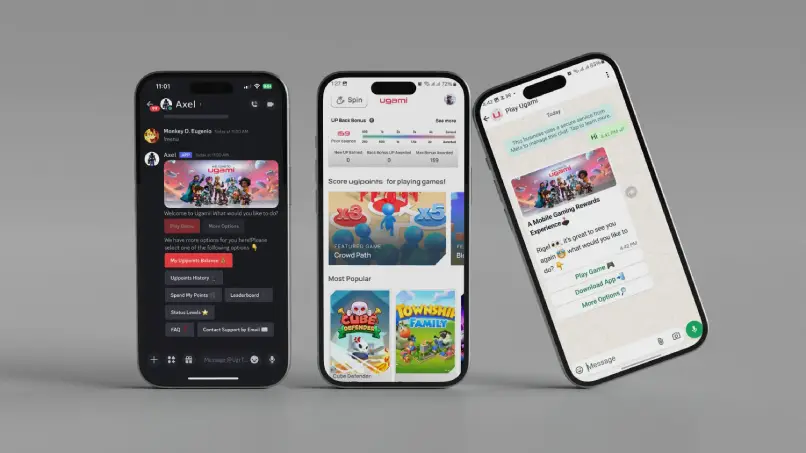Exactly How Play-to-Earn Incentives Are Transforming the Pc Gaming Experience
The development of Play-to-Earn incentives marks a considerable development in the pc gaming landscape, shifting the emphasis from simple home entertainment to real financial engagement. This makeover welcomes players to invest not only their time yet also their funds, fostering a sense of ownership and deeper interaction within game communities. As diverse demographics welcome these chances, new neighborhoods emerge, obscuring the lines between recreation and investment. Yet, this shift raises essential questions concerning sustainability and the future of video gaming. What implications could this have for the industry and its gamers?

Development of Gaming Versions
The landscape of gaming has actually gone through a significant improvement over the decades, progressing from typical pay-to-play models to much more innovative structures that prioritize customer engagement and money making. At first, video games were primarily marketed as standalone products, requiring in advance payments for access. This design, while effective in creating income, usually restricted gamer interaction and community structure.

In recent years, the increase of blockchain modern technology has actually presented play-to-earn systems that basically alter pc gaming dynamics. These versions not just provide a system for players to earn benefits yet likewise equalize the video gaming economic climate, allowing individuals to have in-game properties. This development shows a broader trend towards community-driven experiences, where programmers and players work together in shaping the video gaming landscape, inevitably redefining exactly how value is viewed in the gaming market.
Benefits of Play-to-Earn Systems
Opening new methods for gamer engagement, play-to-earn systems use a series of advantages that basically enhance the video gaming experience. These systems empower players by giving substantial rewards for their time and effort, promoting a sense of ownership and investment in the video game. This inherent motivation drives gamers to involve even more deeply, discovering game mechanics and neighborhoods that they might or else forget.
Additionally, play-to-earn models equalize pc gaming by leveling the playing area. Gamers from numerous backgrounds can profit from their skills and creativity, making it possible for new participants to experience economic benefits that were commonly booked for designers and authors. This change urges a more varied player base, improving the pc gaming ecosystem with different point of views and experiences.
Additionally, play-to-earn systems advertise neighborhood structure, as players collaborate and contend within decentralized atmospheres. This interaction cultivates social connections that improve enjoyment and retention, as gamers really feel a sense of belonging.
Lastly, these systems can result in raised durability for video games, as regular player engagement typically translates right into sustained interest and financial investment in future versions or expansions, ensuring a vibrant pc gaming landscape.
Financial Effect on Players
Play-to-earn systems not only improve player interaction however likewise have considerable economic implications for people best site included. These platforms allow players to monetize their time and abilities, changing gaming from a recreation right into a sensible revenue source. As click here for more info gamers earn copyright or in-game possessions that can be traded or marketed in real-world markets, they gain monetary motivations that can significantly impact their individual economies.
The economic model promotes a new age of entrepreneurship, as players can buy different video gaming ecosystems or develop techniques to enhance their profits. This possibility for income generation draws in a varied market, consisting of those in areas with restricted job possibilities - play to earn rewards. Several gamers are currently seeing video gaming not just as home entertainment but as a path to financial empowerment.
However, it is important to recognize the volatility related to cryptocurrencies and the capacity for market variations to influence revenues. Players must navigate these risks while stabilizing their gaming and economic activities. On the whole, the economic influence on gamers is profound, reshaping their relationship with gaming and opening up avenues for riches creation in a significantly digital economic situation.
Community Building in P2E Gamings

Players in P2E environments regularly form guilds or alliances, creating networks that help with resource sharing, critical planning, and mutual support. These teams typically participate in participating goals or competitions, additionally strengthening their bonds and enhancing the total pc gaming experience. Furthermore, community-driven events, such as events and social gatherings, offer to unite players, foster camaraderie, and incentivize involvement.
Additionally, designers actively involve with their neighborhoods, integrating feedback and suggestions that shape game growth. This collective strategy not only encourages gamers however additionally makes sure that games develop in placement with gamer rate of interests, boosting fulfillment and long-lasting involvement. Eventually, community building in P2E try this video games is not merely an attribute; it is a foundational aspect that changes the gaming landscape right into a much more comprehensive and interactive environment.
Future Fads in Video Gaming
The gaming market's development is poised to accept a number of transformative fads that will certainly redefine player interaction and experience. Among one of the most significant fads is the assimilation of expert system (AI) to create even more customized pc gaming environments. AI can analyze gamer actions and preferences, allowing designers to tailor experiences that resonate deeply with private users.
In addition, the introduction of online and increased fact (VR/AR) innovations is readied to enhance immersion, offering gamers the capacity to communicate with electronic globes in extraordinary means. This will certainly not just elevate gameplay yet also foster social links, as gamers can team up and complete in common environments.
Furthermore, the rise of blockchain innovation will certainly remain to affect the gaming landscape, enabling real ownership of in-game possessions through non-fungible tokens (NFTs) This fad will certainly equip gamers to trade and monetize their video gaming experiences, better blurring the lines in between gaming and financial investment.
Verdict
By integrating economic incentives into gameplay, players are progressively engaged, cultivating a feeling of possession and investment in electronic atmospheres. As these patterns continue to advance, the blurred lines between entertainment and financial investment will likely redefine the future of gaming, forming brand-new experiences for players worldwide.